David Bowie: The internet pioneer
- Published
David Bowie spoke about music, drugs, and the internet in this BBC interview in 2000
David Bowie is best remembered for his music - but he was also groundbreaking in his use of technology, not least his internet service, BowieNet, which launched in September 1998.
In a time before Instagram, YouTube, Twitter or even MySpace, most artists provided little if any online material to their followers.
But Bowie's platform, external not only offered a wide variety of exclusive content, but also several ways to interact with the singer himself.
"In my view, BowieNet had to be the most groundbreaking reachout to fans that I have ever seen any artist ever do," Craig Carrington, one of its users, says.
"He just had the attitude that if he was going to do it, he was going to do it right."
Follow the "David Bowie" tag in the BBC News app on your mobile device
BowieNet also operated as a full internet service provider (ISP) in the US and UK, competing with AOL, Claranet and others.
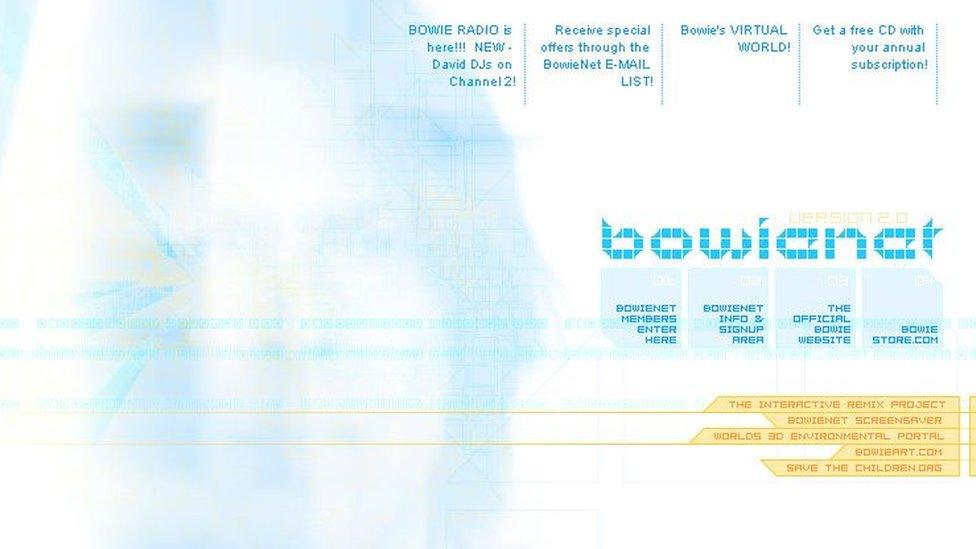
Much of BowieNet's content was lost when the service was switched off
For a monthly fee, members got an @davidbowie.com-ending email address and exclusive access to audio recordings, music videos and chat rooms, which the singer participated in himself.
"He would never announce it in advance, but he would get on to the chat board and talk to us. The handle he always called himself by was Sailor," says Mr Carrington.
"Sometimes he would bring on a special guest for an interview, other times he would say things like, 'I just discovered this new act, who you probably haven't heard of yet.'"
Other content included personal photos Bowie had uploaded and images of his paintings as well as access to some of his journals.
To be fair, not everyone was sold on the idea.
As one article from the time noted, a follower said she wished, external that Bowie would spend more time writing new music, while another questioned what message the email address would send out if he used it for business correspondence.
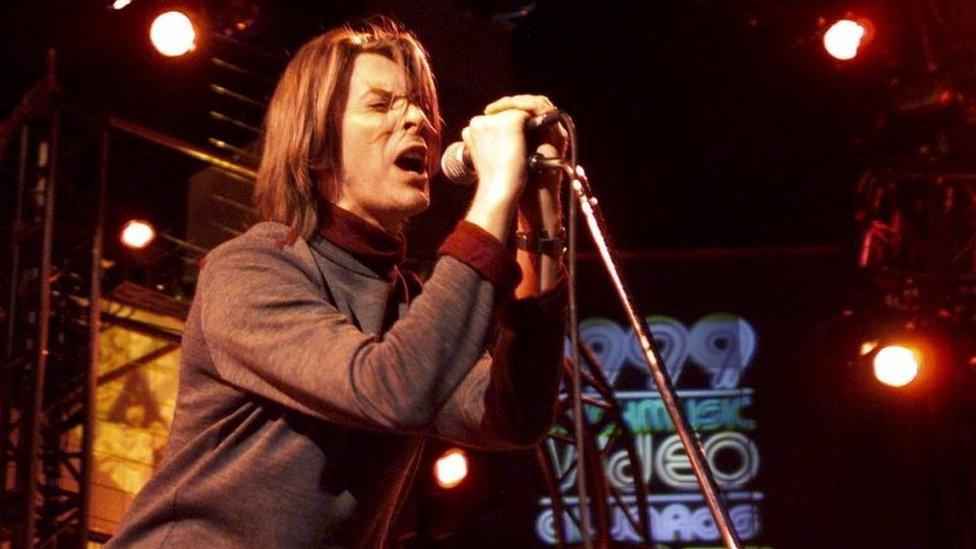
David Bowie said in interviews during the 1990s that he expected the internet to have a big effect on the music industry
But one biographer said that, like much of Bowie's work, it proved to be influential.
"It was very ahead of its time," says Chris O'Leary, author of Rebel Rebel.
"Back then, other rock star web pages were kind of cupboard sites that maybe had one picture of them and a little bit of text and that was it.
"This was really the first attempt to create an internet community built around an artist. And it was very successful too."
Bowie also used the service to create what became known as the world's first "cyber-song".
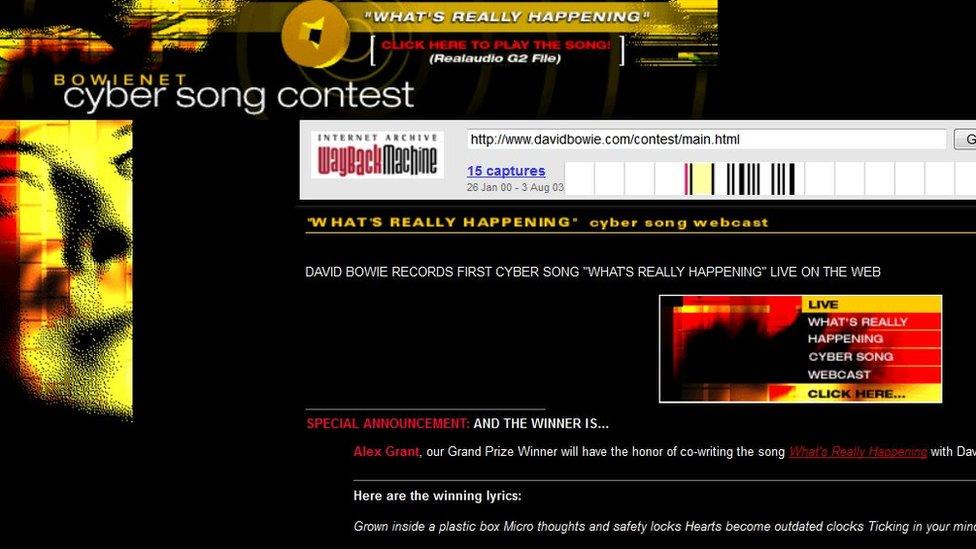
In 1999, David Bowie ran a contest on the internet to help him co-write a song
Fans were invited to send in lyrics to help co-write a track, and 80,000 people responded.
The singer said he had read through many himself - "there were a lot of potty ones", he told one journalist, external - and eventually chose a submission by a 20-year-old American about the idea of having a virtual life on the internet.
Fans were invited to watch the track being recorded via a 360-degree interactive webcast - a technology that is only just becoming commonplace today.
The song, What's Really Happening?, later featured on the Hours... album.
Virtual worlds
The singer's fondness for new forms of communication was also apparent with BowieWorld - a 3D chat environment offered via his site, which pre-dated Second Life.
"It took a couple of minutes to download, but was completely new for the internet," says Mr Carrington.
"It gave the illusion that you were going through a three-dimensional city, and you saw decorations that he put all over the place - favourite posters and pictures of himself.
"You had an avatar - a creature or a person you controlled - and you could move around the environment and interact with others."
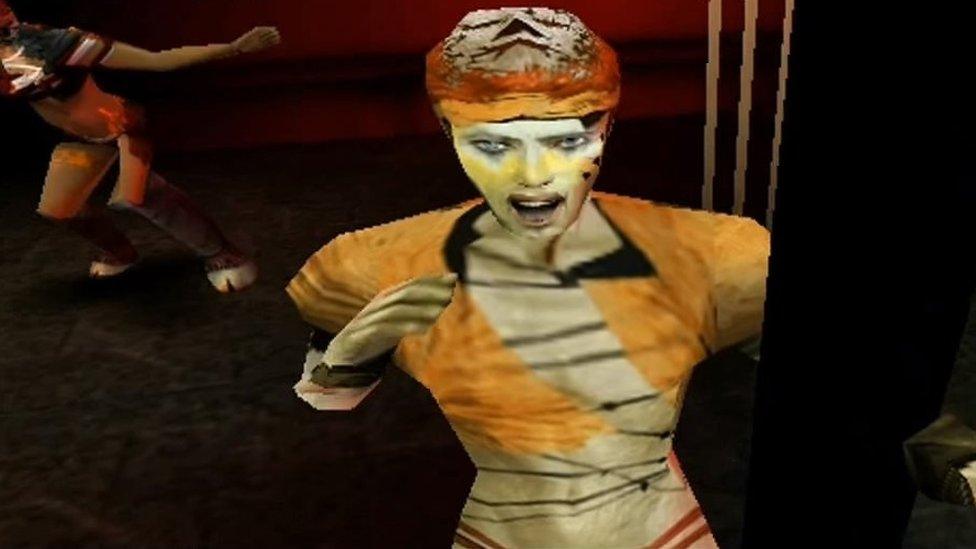
Several of the songs used in Omikron also appeared on David Bowie's album Hours...
At the end of 1999, the singer also became involved in video games, when he appeared in Quantic Dream's Omikron.
He played a character named Boz, a hunted revolutionary.
"It was relatively unprecedented to have such a big star embody a character within a game and not just appear as a thinly veiled version of themselves," says Thomas McMullan, a tech journalist at Alphr who played Omikron as a teenager.
"And Bowie engaged to a level that went beyond just lending his face. He worked on it from a musical point-of-view as well.
"A bit that really sticks in my memory is a secret concert that you could discover if you uncovered some clues, and it showed you a clip of him playing in a fictional band. It felt like sneaking into an underground concert."
Slamming software
Bowie also embraced technology for some of his more mainstream activities.
To write his 1995 concept album Outside, he used a specially created piece of software called Verbasizer.
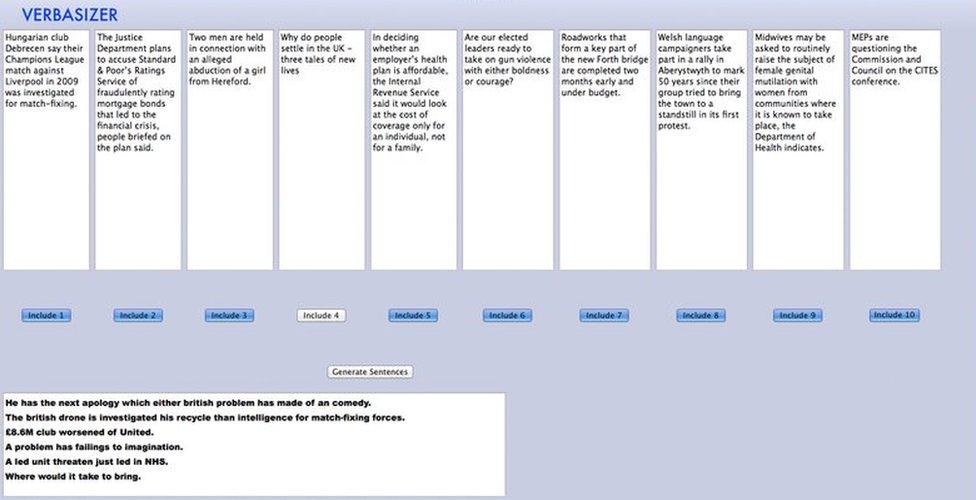
This screenshot of Verbasizer was made public for 2013's David Bowie Is exhibition
The singer typed in dozens of sentences into the Mac program, which then randomly selected words, "slamming" them into each other to create lyrics of its own, which Bowie used as a source of inspiration.
He was also one of the first artists to release an "internet-only" single. Telling Lies was downloaded by more than 300,000 people before later being sold as a physical single.
Bowie also took part in 1999's Netaid charity concert, which was streamed on the web to more than two million people, external, a record for its time.
In 2004, he sponsored an online contest for fans to create new "mashes" of his music, but as the years went by he became a more remote presence.
"When he had talked to us, he came across as very caring and compassionate - he could be very fatherly, especially with the younger visitors," says Mr Carrington.
"But about seven or eight years ago, although you could still log into BowieNet, there didn't seem to be many updates, and we were wondering what was happening.
"It was a shame."
In 2006, Bowie's ISP business was quietly retired, but it was not until 2012 that his Facebook page confirmed what many already knew.
"BowieNet, as we have known it, is kaput!" it said, external.
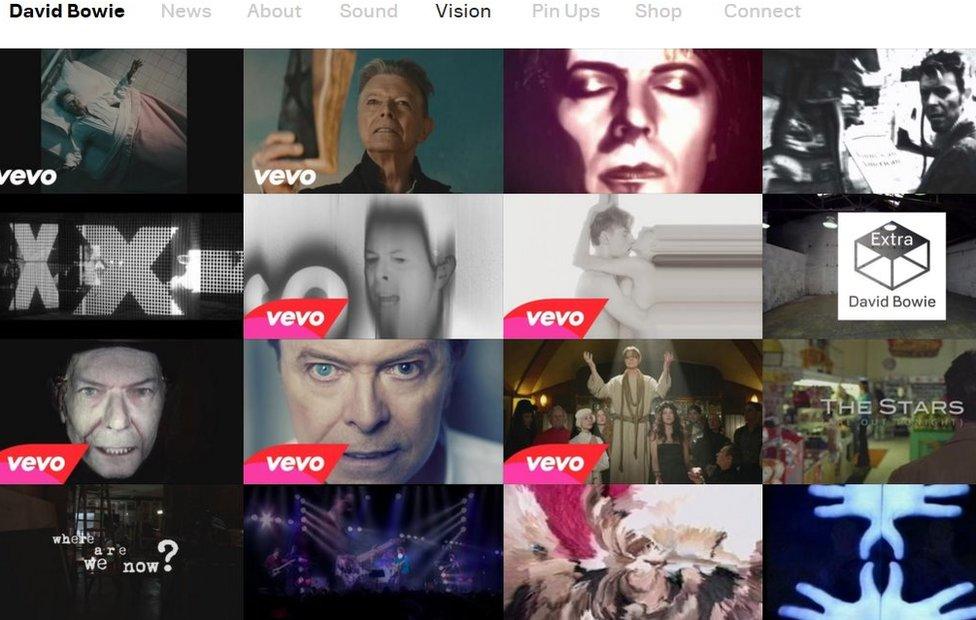
DavidBowie.com gathers together the singer's videos but is not the pioneering force that BowieNet was
The DavidBowie.com website was relaunched in 2013 to coincide with the release of his album The Next Day, but it was a pretty standard affair.
"He did have a health scare in the mid-2000s - that was maybe more serious than was let on," says Mr O'Leary.
"He kind of retreated into his personal life and didn't want to be the guy who is there for you all the time on the internet.
"When he did come back, possibly he just wanted to concentrate all of his efforts on his art and not deal with the social internet side of it.
"But what he did earlier was unprecedented, and it will be part of his legacy."
- Published11 January 2016

- Published11 January 2016
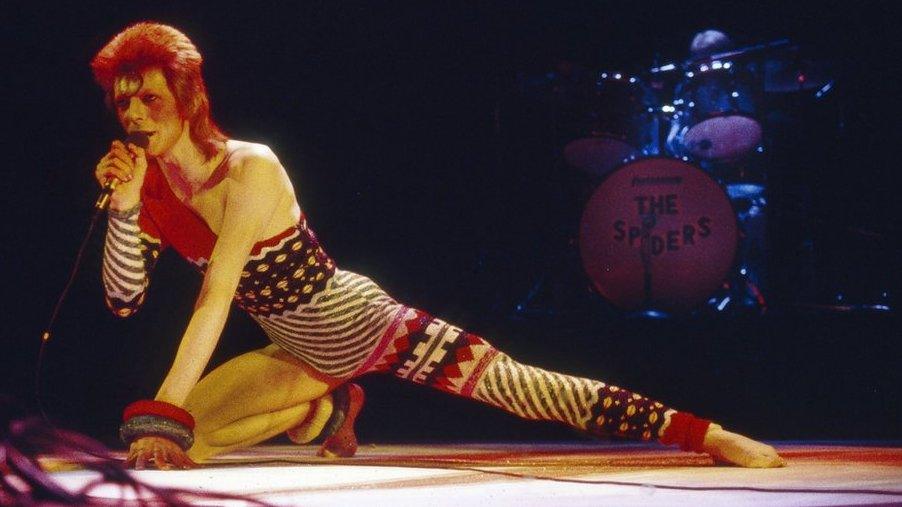
- Published11 January 2016

- Published11 January 2016
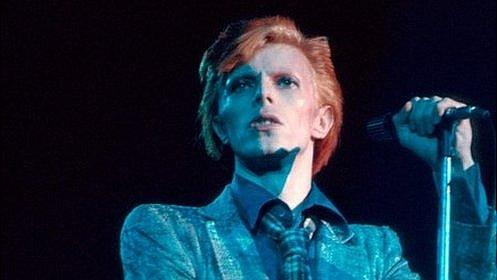
- Published23 March 2013
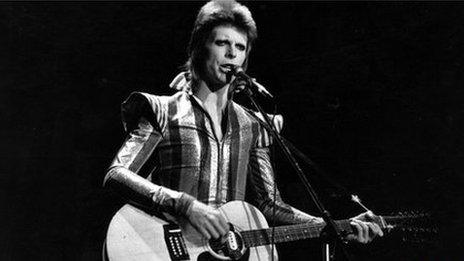
- Published20 March 2013
